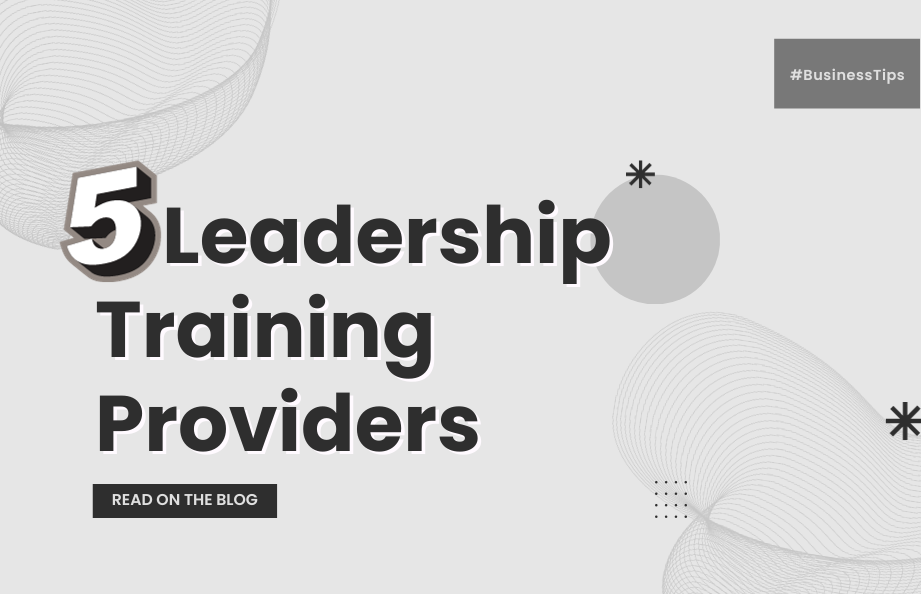In today’s rapidly evolving and dynamic business landscape, leadership has taken on a paramount role in driving success and innovation. Effective leaders are not simply born; they are cultivated and refined through continuous learning, practice, and development. To meet the ever-increasing demands of leadership, individuals and organizations alike seek out the guidance and expertise of renowned leadership training providers. In this comprehensive exploration, we delve deep into the offerings of five top-tier leadership training providers, each with its unique approach and strengths, to help you make an informed decision on your journey toward leadership excellence.
Leadership, in its many facets, is the linchpin of progress and achievement. The ability to inspire, influence, and guide a team or organization toward its goals requires a diverse skill set and a keen understanding of human dynamics. This is where leadership training providers come into play, offering tailored programs that equip leaders with the tools, knowledge, and mindset needed to thrive in today’s complex world of business. Whether you are an aspiring leader looking to hone your skills or a seasoned executive seeking to refine your leadership style, the following in-depth exploration of five prominent leadership training providers will assist you in finding the perfect fit for your leadership development journey.
What is Leadership Training?
Leadership training is a structured and purposeful process aimed at developing the knowledge, skills, and qualities required to lead effectively in various professional and organizational settings. It serves as a vital component in nurturing individuals into competent and influential leaders who can guide teams, inspire change, and drive success. Leadership training programs are designed to equip participants with the tools, strategies, and mindset needed to excel in leadership roles.
Leadership training encompasses a wide range of topics and skills, including but not limited to:
1. Communication: Effective leaders must be adept communicators, capable of conveying their vision, goals, and expectations clearly and persuasively.
2. Decision-Making: Leadership often involves making tough decisions. Training helps leaders develop the ability to analyze situations, evaluate options, and make informed choices.
3. Conflict Resolution: Leaders must be skilled in managing conflicts within their teams or organizations to maintain a positive and productive work environment.
4. Emotional Intelligence: Recognizing and managing one’s own emotions and understanding the emotions of others is essential for building strong relationships and effective leadership.
5. Team Building: Effective leaders know how to assemble and lead high-performing teams, fostering collaboration and synergy.
6. Adaptability: In a rapidly changing world, leaders must be adaptable and open to innovation and change.
7. Strategic Thinking: Leaders must have a strategic mindset, capable of setting long-term goals and charting a course to achieve them.
8. Motivation and Inspiration: Inspiring and motivating team members to achieve their best is a hallmark of effective leadership.
9. Ethical Leadership: Leaders are expected to lead with integrity, demonstrating ethical behaviour and values in their actions.
Leadership training can take various forms, including workshops, seminars, online courses, coaching, and mentorship programs. It may be customized for individuals, teams, or entire organizations, and it often incorporates practical exercises and real-world scenarios to reinforce learning.
The ultimate goal of leadership training is to develop leaders who not only excel in their professional roles but also contribute positively to their organizations and communities. It is a continuous journey that evolves with the changing demands of leadership in today’s dynamic world. In the following sections, we will explore some of the best leadership training providers, each offering unique approaches to leadership development.
List of Top Leadership Training Provider Platforms
1. Hone
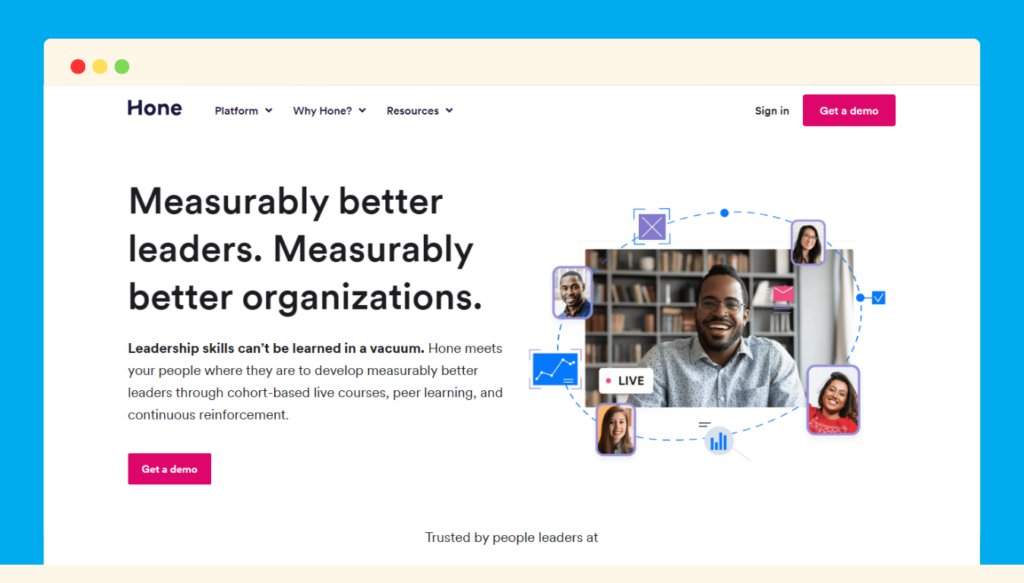
In the contemporary world, where virtual teams and remote work have become the norm, leadership needs to adapt to new challenges and dynamics. Hone, as a top-tier leadership training provider, has embraced this change and carved a niche for itself as a leader in the digital realm. Their approach is a testament to the fact that effective leadership can be fostered and enhanced through technology-driven solutions.
Hone’s distinguishing feature is its utilization of cutting-edge technology to deliver interactive and immersive leadership development programs. Through a blend of personalized coaching, real-time feedback, and lifelike simulations, participants are empowered to practice and refine their leadership skills in a risk-free virtual environment. This approach not only accelerates the learning process but also prepares leaders to face the complex, ever-evolving challenges of the digital age with confidence and competence.
Furthermore, Hone’s commitment to data-driven insights and continuous improvement sets them apart. By harnessing the power of data, they tailor their programs to meet the specific needs of each participant. This personalized approach ensures that leaders receive the guidance and development opportunities that are most relevant to their unique leadership journey. In a world where adaptability and agility are key leadership traits, Hone’s approach is a strategic advantage for leaders and organizations looking to stay ahead of the curve.
Hone’s programs are designed to enhance critical leadership skills, such as communication, decision-making, and team collaboration, which are vital for navigating the complex challenges posed by today’s virtual and globally connected work environment. Whether you’re a seasoned executive seeking to refine your leadership style or an emerging leader looking to build a strong foundation, Hone’s innovative and technology-driven approach positions them as a compelling choice in the realm of leadership training providers. In the following sections, we will continue our journey to explore more of the best leadership training providers, each offering its unique strengths and perspectives on leadership development.
2. FranklinCovey
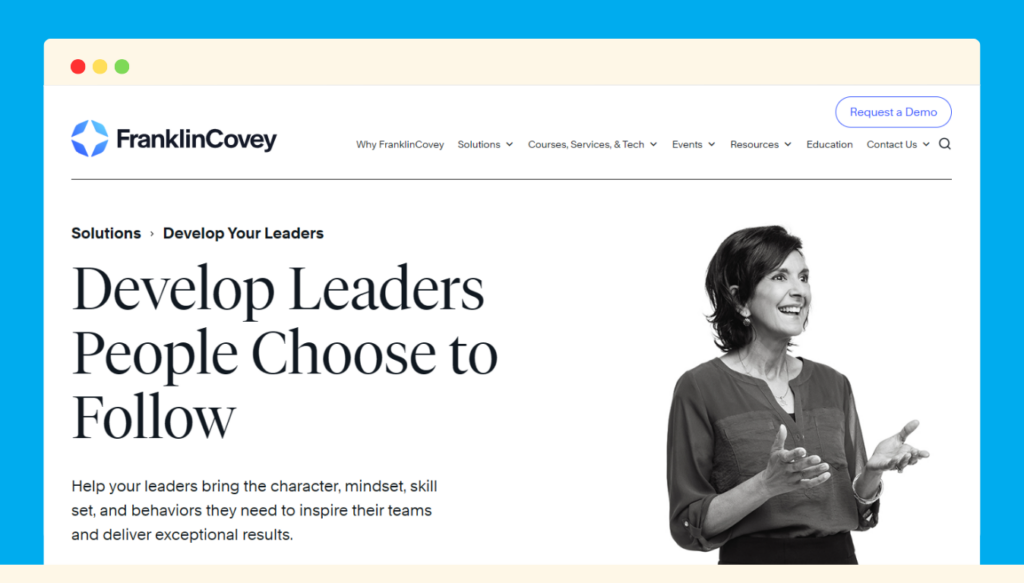
FranklinCovey stands as an enduring and globally recognized name in leadership and personal effectiveness training. With a legacy spanning several decades, this training provider has consistently delivered transformational programs that have impacted millions of individuals and organizations worldwide. At the heart of FranklinCovey’s approach is the belief that effective leadership is built upon a foundation of timeless principles and values.
One of FranklinCovey’s most renowned programs is “The 7 Habits of Highly Effective People.” This program, based on Stephen R. Covey’s bestselling book, has become an iconic guide for leaders at all levels. It lays the groundwork for personal and interpersonal effectiveness, emphasizing character development, prioritization, and proactive decision-making. The 7 Habits framework continues to be instrumental in shaping the mindset of leaders by focusing on key principles such as being proactive, beginning with the end in mind, and seeking to understand before being understood.
What sets FranklinCovey apart is its unwavering commitment to fostering not just effective leaders but also individuals with strong character and ethics. Leadership, in their view, extends beyond the workplace and into every facet of life. This holistic approach resonates with individuals who aspire to be leaders not just in their careers but also in their communities and families.
FranklinCovey’s programs are known for their practicality and applicability. Participants not only gain a profound understanding of leadership principles but also learn how to integrate them into their daily lives and work routines. The focus on time management, prioritization, and goal setting is particularly valuable in helping leaders navigate the ever-increasing demands of a fast-paced world.
Furthermore, FranklinCovey offers a wide range of training solutions, making it accessible to individuals, teams, and organizations of various sizes and industries. From live workshops and online courses to coaching and consulting services, they provide a comprehensive suite of resources to support leadership development at all levels.
In conclusion, FranklinCovey’s enduring legacy, rooted in timeless principles, continues to make it a powerhouse in the world of leadership training. Its programs not only equip leaders with essential skills but also instil a commitment to ethics and personal growth. Whether you’re a newcomer to leadership or a seasoned executive, FranklinCovey’s emphasis on character, effectiveness, and principles provides a solid foundation for leadership excellence. This commitment to enduring values makes FranklinCovey a beacon of leadership development in a rapidly changing world.
3. The Mintable
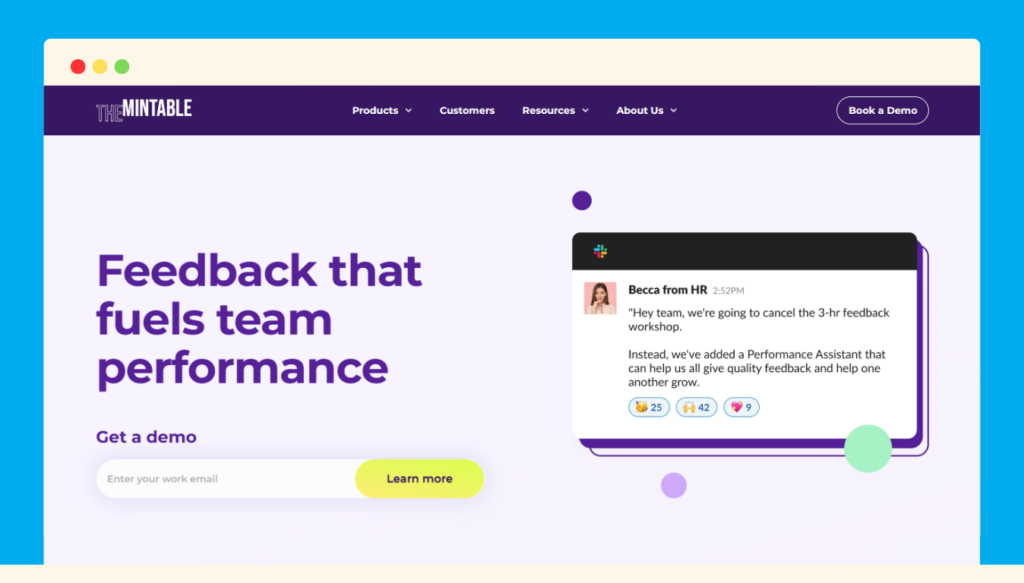
In the dynamic landscape of leadership training, The Mintable emerges as a progressive and innovative provider with a unique approach to leadership development. This provider has gained recognition for its creative perspective on leadership, blending traditional principles with contemporary trends to empower leaders with a fresh and adaptive mindset.
The Mintable’s distinguishing feature lies in its commitment to fostering creativity, adaptability, and innovation in leadership. In an era where disruption and change are constant, these qualities are paramount for leaders seeking to excel. Mintable’s programs are designed to challenge conventional thinking and encourage leaders to explore new avenues of leadership effectiveness.
One of The Mintable’s key strengths is its emphasis on nurturing creativity in leadership. Creativity isn’t often associated with leadership training, but it is a skill that can set leaders apart in today’s competitive landscape. The Mintable believes that creative leaders are better equipped to find innovative solutions to complex problems, inspire their teams, and drive organizational growth.
Mintable’s leadership development programs often incorporate elements of design thinking and innovation. Participants are encouraged to think outside the box, experiment with new approaches, and embrace change as an opportunity for growth. This approach aligns with the modern understanding of leadership as a dynamic and ever-evolving practice.
Furthermore, Mintable places a strong focus on adaptability. Leaders are trained to thrive in environments characterized by uncertainty and rapid change. The ability to pivot, adjust strategies, and lead with resilience is essential for addressing the challenges of today’s business world.
The Mintable’s innovative perspective extends to its delivery methods as well. They often incorporate technology, gamification, and interactive exercises to engage participants in immersive learning experiences. This approach not only keeps learners actively involved but also aligns with the digital nature of modern work and learning.
In summary, The Mintable offers a refreshing take on leadership training by infusing creativity, adaptability, and innovation into its programs. Leaders who are looking to break away from traditional leadership models and embrace a more dynamic and creative approach may find The Mintable’s offerings highly appealing. In a world where change is the only constant, The Mintable equips leaders with the tools and mindset needed to navigate uncharted waters and lead with distinction.
4. Dale Carnegie
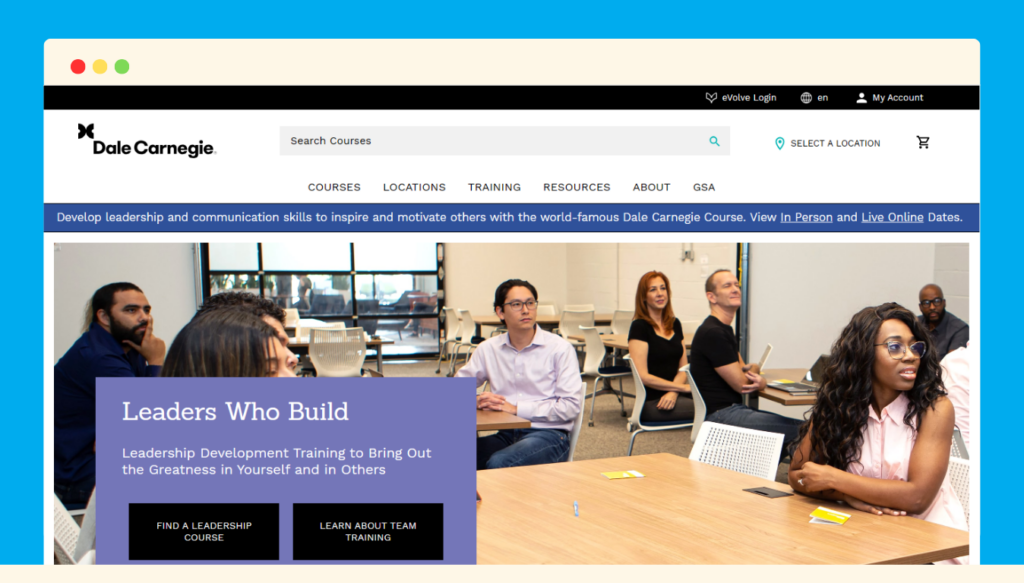
Dale Carnegie, a name synonymous with leadership and communication training, has been a stalwart in the field for over a century. With a rich history and a legacy of transforming individuals into effective leaders, Dale Carnegie continues to be a trusted choice for those seeking to enhance their leadership skills.
At the core of Dale Carnegie’s approach is a relentless focus on communication, interpersonal skills, and the art of building meaningful relationships. Effective leadership, they believe, begins with the ability to connect, inspire, and influence others.
One of the standout features of Dale Carnegie’s programs is their practicality. Participants not only learn leadership principles but also gain actionable insights into how to apply these principles in real-world situations. The emphasis on practical, hands-on learning sets Dale Carnegie apart and ensures that leaders can immediately implement what they’ve learned in their professional and personal lives. Dale Carnegie’s flagship program has been instrumental in developing countless leaders. It covers a wide range of essential skills, including effective communication, public speaking, conflict resolution, and building self-confidence. These skills are crucial for leaders at all levels, from entry-level managers to C-suite executives.
Another key strength of Dale Carnegie is its global reach. With a presence in over 90 countries and a diverse range of clients, they understand the nuances of leadership across different cultures and industries. This global perspective enriches the learning experience and equips leaders with the cross-cultural competence needed to lead in today’s interconnected world. Dale Carnegie’s commitment to ongoing learning is reflected in its continuous evolution and adaptation to modern challenges. While rooted in time-tested principles, their programs are regularly updated to address contemporary leadership needs, such as virtual communication and remote team leadership.
Moreover, Dale Carnegie places great importance on the development of essential soft skills, such as empathy, active listening, and emotional intelligence. These skills not only enhance leadership effectiveness but also contribute to creating positive work environments and fostering strong team dynamics.
In conclusion, Dale Carnegie’s enduring legacy in leadership and communication training speaks volumes about the effectiveness of their approach. Leaders who seek to excel in their roles, build strong relationships, and communicate with impact will find Dale Carnegie’s programs to be a valuable resource. With a focus on practicality, global perspective, and timeless principles, Dale Carnegie continues to empower leaders to navigate the complexities of leadership with confidence and finesse.
5. Aptimore
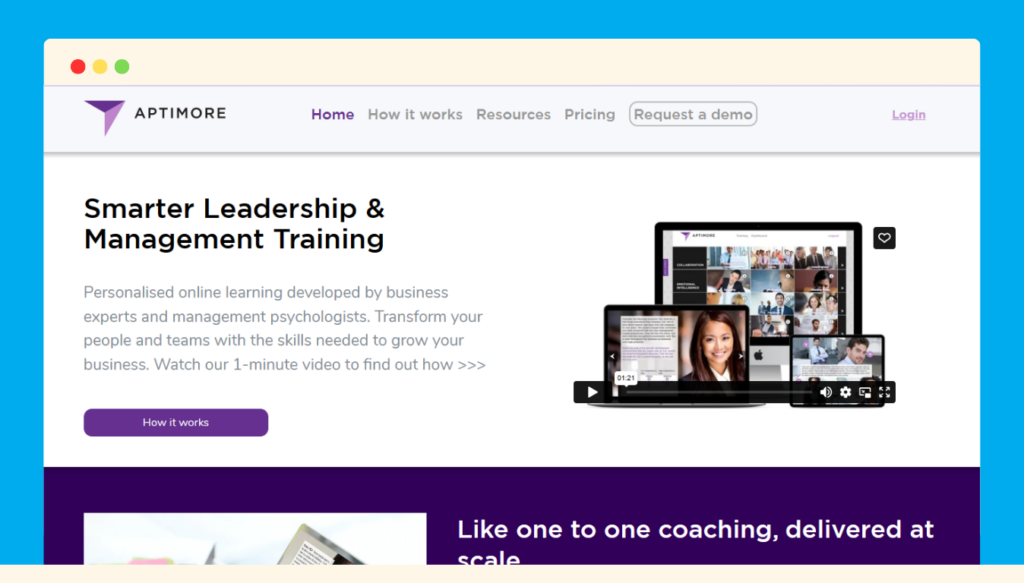
In the realm of leadership training, Aptimore stands out as a provider that places a unique emphasis on emotional intelligence and mental resilience. This distinctive approach recognizes that effective leadership is not solely about strategic thinking and decision-making but also about the ability to understand and manage one’s emotions and build strong, resilient teams.
Aptimore’s core philosophy centres around the idea that leaders who are emotionally intelligent and mentally resilient are better equipped to navigate the challenges of modern leadership. Their programs are designed to enhance these crucial aspects of leadership, which are often overlooked by traditional leadership training providers.
One of Aptimore’s key strengths lies in its use of evidence-based practices and psychological principles. Participants undergo assessments that provide valuable insights into their emotional intelligence and resilience levels. These assessments serve as a starting point for targeted training modules, ensuring that leaders receive personalized development that aligns with their unique needs and areas for growth.
Emotional intelligence is a central theme in Aptimore’s programs. Leaders learn to recognize and manage their own emotions effectively, as well as understand and empathize with the emotions of others. This skill set is invaluable for building strong relationships, resolving conflicts, and fostering a positive work environment. Aptimore’s focus on emotional intelligence aligns with the modern understanding that successful leadership is not just about IQ but also EQ (Emotional Intelligence Quotient).
Mental resilience is another critical aspect of Aptimore’s approach. In today’s fast-paced and often stressful work environments, leaders must possess the ability to bounce back from setbacks, adapt to change, and maintain their well-being. Aptimore’s training equips leaders with the tools and strategies needed to build mental resilience, reduce stress, and sustain their performance over the long term. Furthermore, Aptimore’s commitment to ongoing development is evident in its coaching and support services. Participants receive guidance and feedback from experienced coaches, ensuring that they can apply what they’ve learned in real-world leadership scenarios.
In summary, Aptimore offers a unique and valuable perspective on leadership training by prioritizing emotional intelligence and mental resilience. Leaders who recognize the importance of self-awareness, empathy, and mental well-being in their roles will find Aptimore’s programs to be highly relevant and impactful. By focusing on these often-neglected aspects of leadership, Aptimore equips leaders to excel not only in their professional lives but also in their personal well-being, fostering a more holistic and sustainable approach to leadership.
How to Choose a Training Provider for Leadership Training
Selecting the right training provider for your leadership development journey is a crucial decision that can profoundly impact your growth as a leader and the success of your organization. Here are key considerations to guide you in making an informed choice:
1. Identify Your Needs: Begin by assessing your specific leadership development needs. Are you looking to improve communication skills, enhance emotional intelligence, or develop strategic thinking? Understanding your goals and areas for improvement will help you narrow down your options.
2. Research Providers: Explore the offerings of various training providers. Look for providers with a strong track record, positive reviews, and a reputation for excellence in leadership training.
3. Customization: Consider whether the provider offers tailored programs that can be adapted to your unique needs. A one-size-fits-all approach may not be effective in addressing your specific leadership challenges.
4. Credentials and Expertise: Investigate the credentials and expertise of the trainers or facilitators. Do they have relevant experience in leadership development? Are they recognized experts in their field?
5. Delivery Methods: Assess the delivery methods offered by the provider. Do they offer in-person training, virtual programs, or a combination of both? Choose a format that aligns with your learning preferences and constraints.
6. Content Relevance: Ensure that the training content aligns with modern leadership challenges and is up-to-date with the latest industry trends.
7. Interactive Learning: Look for programs that incorporate interactive learning experiences, such as role-playing, case studies, and simulations. Practical application is key to effective leadership development.
8. Support and Resources: Inquire about the level of support and resources provided during and after the training. Coaching, mentoring, and access to additional learning materials can enhance your development.
9. Feedback and Assessment: A robust feedback and assessment mechanism can help track your progress and identify areas for improvement. Ensure that the provider includes these elements in their programs.
10. Cost and ROI: Consider the cost of the training program in relation to the value it offers. Assess the potential return on investment (ROI) in terms of improved leadership skills and organizational performance.
11. Cultural Fit: Evaluate whether the training provider’s approach and values align with your organizational culture and leadership philosophy.
12. References: Request references or case studies from the provider to gain insights into the impact of their training on past participants and organizations.
By carefully evaluating these factors and conducting thorough research, you can choose a training provider that aligns with your leadership development goals and sets you on the path toward leadership excellence. Remember that leadership training is an investment in your personal and professional growth, and selecting the right provider is a critical step in realizing your leadership potential.
